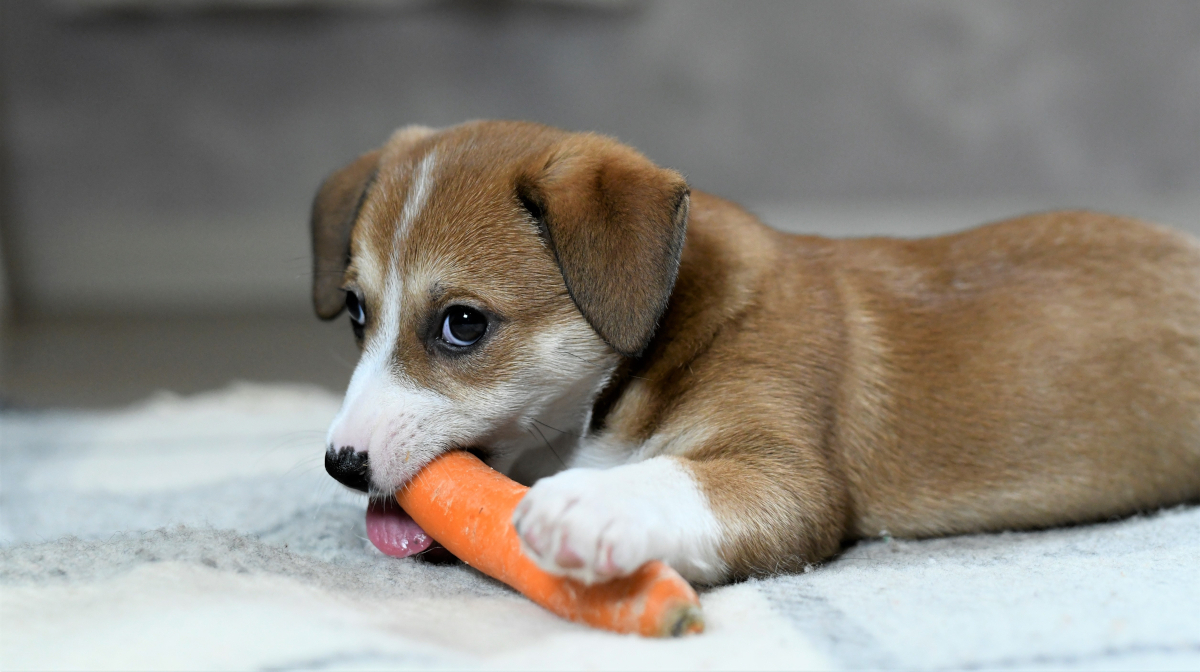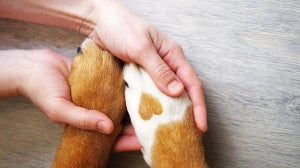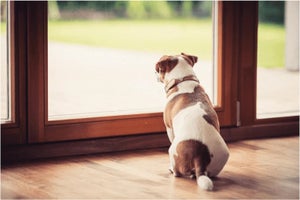
Are carrots good for dogs? The answer is yes! They boast a clutch of nutritional benefits for your furry friend and are a safe, easy, and healthy canine treat, but proper precautions when feeding need to be followed.
To discover why carrots for dogs are a good thing in more detail, scroll on.
What Nutritional Benefits Do Carrots Offer Dogs?
Are carrots good for dogs - yes they are! They’re packed with vitamins and nutrients that bolster your doggy’s health. They’re a fantastic source of fibre, which helps manage cholesterol, digestion, and keeps the heart healthy - but that’s just the start, as there are so many other great health benefits too.
Beta-carotene. Carrots are full of the stuff. It converts into Vitamin A, which supports their vision and - you guessed it - their nighttime eyesight as well
Carrots only have a small amount, but you can bolster that with other great, healthy protein dog foods
Vitamin B6 helps boost immune system function and skin health
Vitamin K is one brilliant nutrient, making bones stronger
Antioxidants defend against diseases
Potassium promotes healthy nerves
All in all, carrots for dogs are a great low-calorie but nutrient rich snack for your furry friend.
Can Dogs Eat Raw Carrots?
Yes, dogs can eat raw carrots - but it’s probably more beneficial if they’re cooked. Raw carrots come with cellulose and are a challenge for your canine to digest. Cooked carrots open up a whole world of nutrients, like beta-carotene etc, so provide a wealth of healthy traits.
Eating raw carrots is a convenient way to help clean your dog’s teeth as their natural abrasion and the action of biting down on a whole carrot can help scrape away food debris. They also encourage saliva production, which helps your pet’s oral hygiene. However, always remember that carrots may pose a choking hazard. Depending on your canine’s size and breed, cut the veg into suitably sized pieces and, as when offering any food, always supervise whilst your dog is eating.
Find out more about which vegetables are good for dogs here!Are There Any Risks or Downsides to Feeding Dogs Carrots?
Carrots for dogs are great as healthy rewards, but they also come with some risks. Natural sugars and calories are part of the carrots' composition, meaning too many could lead to weight gain, plus associated issues like obesity and diabetes, especially when you consider your dog’s daily diet intake.
They could pose a choking hazard and are a food to avoid if your dog suffers from food intolerances or allergies, as this could lead to digestive issues or tummy discomfort. But dogs can be gently introduced to vegetables.
Feed them small bits and watch how they react. If there are no stomach issues, then gradually increase their intake. Always remember that carrots and other treats should only be 10% of your doggy’s daily intake.
Find out more about which vegetables are doggy safe here, but always ask your vet’s advice before including carrots in your pet’s diet.
How to Safely Prepare Carrots for Dogs
Can dogs eat carrots - they can, but you must always prepare them the right way. Wash them to remove dirt and pesticides, followed by peeling them, if you wish. Either offer a full carrot suitable for the size of your dog’s jaw or cut them into small pieces suitable to your dog's breed and size. Always supervise whilst your dog eats anything, being aware of the risks of choking.
Steaming or boiling carrots softens them and helps release beneficial vitamins and nutrients. For convenience, prepared dog foods with cooked carrots are readily available to buy.
Carrots as a Natural Teeth Cleaner and Chew Toy
Carrots can also aid dental health and hygiene, too. When dogs eat raw carrots it encourages chewing, which scrapes plaque and other bits of food from their teeth because of their natural texture. They also stimulate saliva production, which is great for oral hygiene.
Cold carrots also help soothe teething puppies, and they are a planet-friendly, plastic-free chew toy alternative. But they are a choking hazard. So always watch your furry friend when they start, and always cut into suitably sized slices for your dog’s size and breed.
Important: Never freeze carrots for your dog. Frozen foods are too hard for your dog to bite as the enamel on a dog's tooth is only a quarter of the thickness of the enamel on human teeth. Dogs are at risk of damaging the enamel on their teeth by attempting to bite anything frozen.
How to Introduce Carrots into Your Dog’s Diet
Dogs can eat carrots, but it’s always best to gradually introduce them first. We advise starting with small portions so you can watch for any intolerance or allergic reactions, like vomiting or diarrhoea. Mix them into meals or use them as raw or cooked treats over a number of weeks so you can properly detail how your dog reacts to the veg.
Never exceed 10% of your furry friend’s daily intake, and always moderate their carrot consumption. If your dog has a sensitive stomach or pre-existing conditions, chat with your vet to see if your dog can eat carrots.
Dogs certainly can eat carrots, and for the most part, they are a healthy, nutrient-rich snack.
They’re packed with vitamins and nutrients that support eye and digestive health, as well as other body functions. Whilst helpful at teeth cleaning, they can also pose a choking hazard, so they should be cut to a suitable size for your dog’s breed and size. Always ask your vet if they are appropriate for your pet, and if they are, gradually introduce them into their diet.
In short, carrots are good for dogs. But to tick all the boxes, we’ve compiled right here what dogs can and can’t eat.









